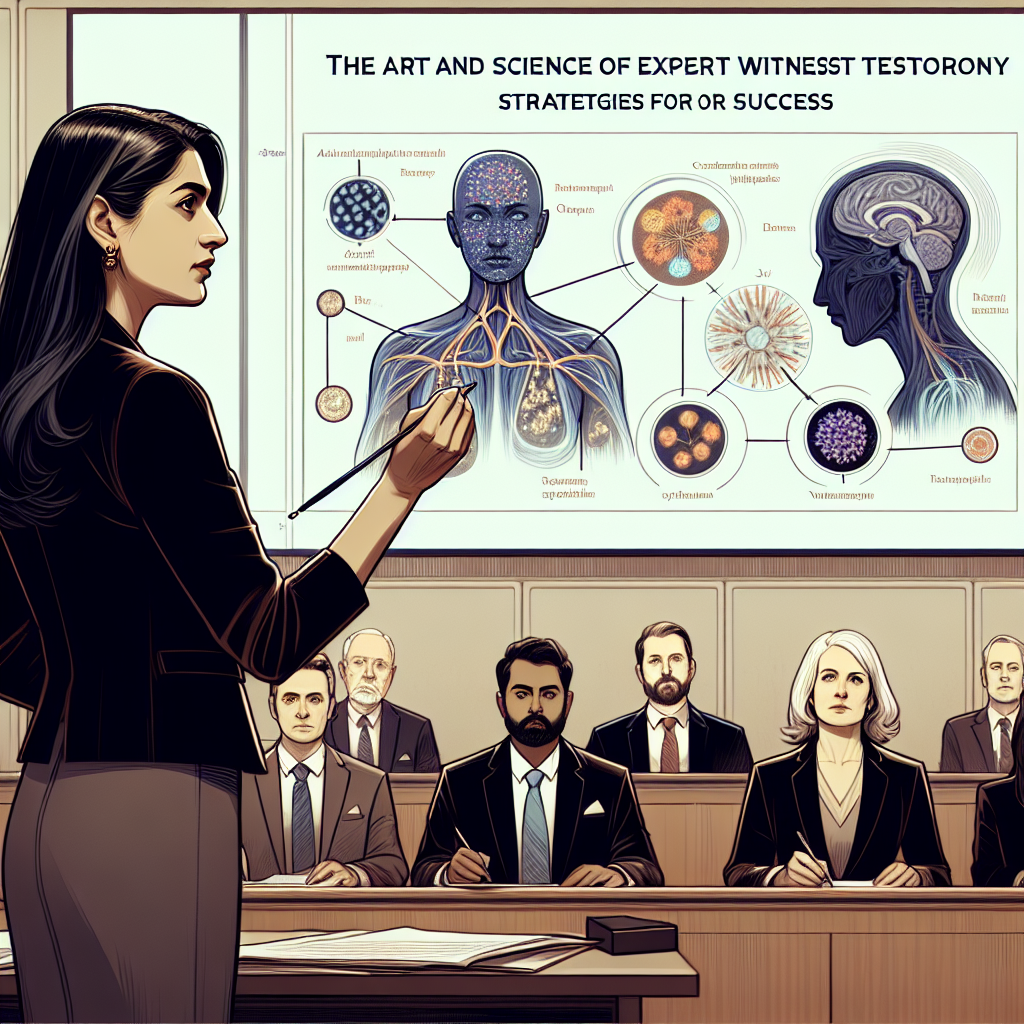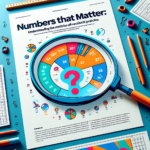
Introduction
In the complex world of litigation, the role of an expert witness can profoundly influence the outcome of a case. The ability to effectively communicate expert opinions can sway juries, inform judges, and ultimately, determine the direction of legal disputes. This article delves into The Art and Science of Expert Witness Testimony: Strategies for Success, exploring essential techniques and insights that can set expert witnesses apart.
Imagine a passionate courtroom full of hope and skepticism. An expert takes the stand, armed not just with credentials, but with the mastery of articulation and persuasion. This delicate balance of knowledge and effective communication is what separates the successful expert witnesses from the rest.
Understanding the Role of Expert Witnesses
Definition and Purpose
An expert witness is a person with specialized knowledge in a particular field, providing testimony that helps clarify complex issues for a judge or jury. The aim is not just to provide information, but to aid in the understanding of the case.
Legal Standards for Expert Testimony
Familiarity with legal standards—such as the Daubert standard—is vital. This standard evaluates the methodology and relevance of an expert’s testimony, ensuring that it is both scientifically valid and applicable to the case at hand.
Real-World Case Study: Daubert v. Merrell Dow Pharmaceuticals, Inc.
In this landmark case, the Supreme Court articulated the standards for admitting expert witness testimony, shaping future litigation. Expert witnesses who adhere to these guidelines and present scientifically sound practices are far more likely to have their testimonies accepted in court.
The Science of Expert Witness Testimony
Engaging Expertise
Having the right qualifications is just the beginning. Experts must continuously engage with their fields, remaining updated on the latest developments and breakthroughs. This ongoing education adds depth to their testimony, showcasing their commitment to their profession.
Communicating Complexity
Effective communication lies at the heart of The Art and Science of Expert Witness Testimony: Strategies for Success. Experts must translate complex jargon into language that is digestible for a lay audience. This involves using clear, concise language and drawing upon analogies or visual aids.
Table 1: Techniques for Effective Communication
| Technique | Description |
|---|---|
| Simplification | Break down complex ideas into simpler concepts. |
| Visualization | Use diagrams or charts to illustrate key points. |
| Storytelling | Frame information in a narrative to engage the audience. |
The Art of Testimony
Building Credibility
Establishing trust with the court is essential. This involves not just showcasing qualifications but also demonstrating impartiality. A well-rounded expert who presents both sides of an argument enhances credibility.
The Importance of Body Language
Non-verbal communication significantly impacts how testimony is received. Maintaining eye contact, using open gestures, and adopting a relaxed posture can bolster an expert’s authority and engage the jury effectively.
Case Study Analysis: The Role of Body Language in Trials
In a notable trial, an expert witness’s confident demeanor and deliberate pacing stood in stark contrast to a nervous defendant. The jury’s perception of reliability shifted dramatically based on these visual cues, demonstrating the profound impact of body language on decision-making.
Strategies for Preparation
Research and Rehearsal
Preparation is key to success in expert witness testimony. Comprehensive research not only involves understanding the case but also delving into opposing viewpoints. Trial simulations can help experts rehearse their testimony, refining responses to potential challenges.
Anticipating Cross-Examination
An effective expert is prepared for questioning from both sides. Understanding the weaknesses in one’s case can provide an edge during cross-examination, allowing experts to offer preemptive clarifications and reinforce their credibility.
Table 2: Preparation Strategies
| Strategy | Purpose |
|---|---|
| Comprehensive Research | Develop a well-informed perspective. |
| Mock Trials | Practice responding to challenging questions. |
| Peer Feedback | Gain insights from colleagues on clarity. |
Crafting Impactful Testimony
Structuring Testimony
A logical structure enhances clarity. Experts should present their findings in a sequence that mirrors the case’s narrative, linking their expertise directly to the issues at stake.
Using Visual Aids
Charts, graphs, and multimedia presentations can make complex data approachable. A well-placed visual not only supports testimony but also drives points home for the jury.
Case Study: The Role of Visual Aids in Legal Testimony
In a medical malpractice case, an expert used a clear infographic to illustrate the standard of care expected from physicians. This visual representation clarified the argument and engaged jurors more effectively than verbal testimony alone, showcasing the powerful synergy of spoken and visual information.
Navigating the Courtroom Environment
Understanding Courtroom Dynamics
Awareness of the courtroom environment is crucial. Experts must observe and adapt to the reactions of judges and jurors, making real-time adjustments to maintain engagement.
Building Rapport with the Jury
Establishing a connection with jurors can elicit empathy and understanding. Simple strategies, such as addressing jurors directly and maintaining an approachable tone, can foster a positive atmosphere.
Real-World Example: The Importance of Rapport
In a high-stakes criminal case, an expert witness who took the time to engage with jurors during breaks found that their overall receptiveness improved significantly during testimony. This highlighted the importance of interpersonal connection in judicial outcomes.
The Aftermath: Evaluating Performance
Self-Reflection Post-Testimony
After taking the stand, it’s vital for experts to reflect on their performance. Identifying strengths and areas for improvement can prepare them for future cases, reinforcing The Art and Science of Expert Witness Testimony: Strategies for Success.
Seeking Feedback
Collecting feedback from attorneys and observing courtroom deliberations provides invaluable insights. Understanding how one’s testimony impacted the jury can guide future practices.
Case Analysis: Post-Trial Observations
A seasoned expert who reviewed their notes after a trial realized their strongest moments coincided with clear ring patterns in their data presentation. Recognizing this allowed them to replicate success in later testimonies.
Conclusion
Navigating the landscape of expert witness testimony is a blend of art and science. From effective communication to understanding courtroom dynamics, the skills required for success are diverse yet interconnected. By adopting proven strategies, experts can enhance their impact within the judicial system and ensure their voices are heard.
In the quest for mastery in The Art and Science of Expert Witness Testimony: Strategies for Success, it’s vital to embrace both preparation and adaptability. As the legal landscape evolves, continuously honing these skills will empower experts to fulfill their critical roles effectively.
FAQs
1. What qualifies someone to be an expert witness?
An expert witness typically holds advanced degrees and extensive experience in a specialized field. This expertise must be relevant to the case at hand.
2. How can I improve my communication skills as an expert witness?
Practicing public speaking, simplifying complex ideas, and rehearsing with peers can enhance comprehension and delivery during testimony.
3. What should I include in my report as an expert witness?
Your report should include background information, a summary of qualifications, methodology, findings, and any additional evidence that supports your conclusions.
4. How can I prepare for potential cross-examination?
Understanding potential weaknesses in your testimony and rehearsing possible questions can help you remain composed and articulate during cross-examination.
5. What are common pitfalls to avoid in expert witness testimony?
Avoiding jargon, remaining impartial, and failing to prepare for questions are common pitfalls. Experts should be mindful of their language and maintain professionalism throughout the process.
By applying these insights and strategies, experts can excel in their crucial roles, enhance their credibility, and ultimately contribute to the pursuit of justice.















